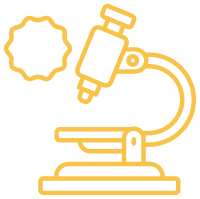New Era for Genetic Testing
Genetic Testing to Reduce Drug Reactions in Cancer Care
Genetic testing can help reduce the risk of harmful drug reactions in cancer treatment. A recent study from the 100,000 Genomes Project found that over 14,000 cancer patients could benefit from personalized drug dosing or alternative medications.
Understanding Adverse Drug Reactions
People can respond differently to the same medication. While some experience positive results, others may face severe, life-threatening reactions. These are called adverse drug reactions. They pose serious risks, especially for those undergoing cancer treatment.
The Role of Genetics in Drug Reactions
Adverse reactions can be caused by genetic differences. Nearly 99% of people carry genetic changes that affect how they respond to certain drugs. These reactions contribute to many hospital admissions and cost the NHS significant funds each year. This highlights the importance of pharmacogenomics, which studies the link between genes and drug responses.
Findings from the Latest Research
The recent study examined over 76,000 participants from the 100,000 Genomes Project. Researchers looked for genetic changes in four genes linked to reactions to cancer drugs. The results showed that 62.7% of patients had genetic variations that increased their risk. Adjusting the dose or switching to a different medication could benefit 6-10% of these patients. This could improve treatment for over 14,500 patients in England each year.
The Importance of Pharmacogenomics
Pharmacogenomics is already used in clinical care. For example, testing for the DPYD gene is available through the NHS to predict responses to certain chemotherapy drugs. This helps doctors identify patients who may face adverse reactions and adjust treatment plans accordingly. This new research supports using whole genome sequencing in routine cancer care to improve patient outcomes.
Newborn Genetic Testing: A Pioneering Step
The Rosie Hospital in Cambridge is now testing newborns for over 200 rare conditions. This is part of the Generation Study, led by Genomics England and the NHS. The goal is to find and treat rare diseases early, giving babies a better chance at healthier lives.
How Whole Genome Sequencing Works
Whole genome sequencing reads all of a person’s DNA. It can identify many rare conditions early, unlike standard screening tests that only detect a few. For the study, blood samples are taken from the umbilical cord after birth. Parents usually get results within weeks. Early diagnosis means children can receive the treatment and support they need sooner.
Parental Experiences and Study Benefits
Laura, a mother from Cambridge, joined the study with her daughter Cassie. “It’s exciting to be part of this research. The process was simple, and the results were reassuring,” she said. The study involves experts, families, and policymakers to ensure it meets the needs of those affected by rare conditions.
Looking Ahead
The Generation Study could change newborn screening, allowing for early and effective treatment. Storing sequenced genomes could also help diagnose and treat illnesses as children grow. This study shows the potential of genomics to improve healthcare in the long run.
Genetic testing can make cancer treatments safer and improve early diagnosis for newborns. Using genomics in routine care can lead to better health outcomes and long-term benefits.
Chimpresearch.com

